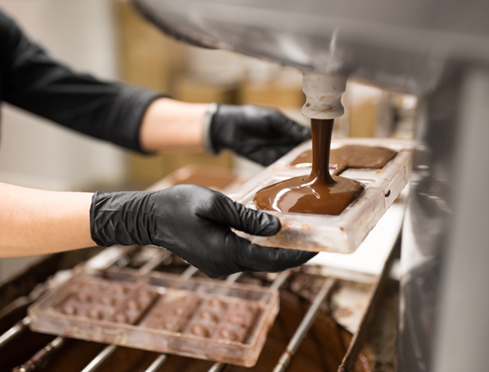Introduction
In today's quickly evolving food sector, services are seeking sustainable options to satisfy the expanding demand for high quality food products while lessening their ecological impact. Contract food manufacturing has emerged as a sensible alternative for companies looking to outsource their manufacturing needs while maintaining control over product growth and also quality assurance. This post checks out the idea of contract food manufacturing in Australia as well as its duty in promoting sustainability within the food industry.
The Rise of Contract Food Manufacturing in Australia
Understanding Agreement Food Manufacturing
Contract food production is a calculated collaboration between a brand name owner and also a contract supplier, where the last creates items in behalf of the former. This arrangement allows brand owners to concentrate on advertising and marketing, product advancement, and also distribution while leveraging the competence and sources of specialized agreement manufacturers.
Benefits of Contract Food Manufacturing
Cost Efficiency: Contract food manufacturing eliminates the requirement for considerable capital investments in infrastructure, devices, and also manpower. This cost-saving action enables brand names to assign their resources in the direction of various other important areas of company growth. Scalability: As demand for a specific item rises and fall, contract makers can rapidly change production degrees to accommodate market needs. This flexibility guarantees that brand names can meet consumer need without excess stock or wastage. Expertise and also Technology: Contract manufacturers usually have comprehensive understanding and experience in details food categories or procedures. By collaborating with these professionals, brand names can use their creative thinking as well as harness ingenious remedies for product advancement and improvement. Quality Assurance: With stringent quality control actions in place, agreement makers abide by market requirements as well as governing requirements. This dedication to excellence makes certain that brands deliver secure and also high-quality items to customers consistently. Supply Chain Management: Contract food manufacturing streamlines the supply chain by settling manufacturing, packaging, labeling, as well as distribution under one roof. This incorporated technique minimizes logistical intricacies and also improves overall functional efficiency.The Environmental Impact of Agreement Food Manufacturing
Reducing Carbon Footprint
Contract food production offers opportunities to minimize the environmental influence of food manufacturing through various ways:

Embracing Renewable Energy
Contract food manufacturing centers in Australia are progressively embracing renewable energy sources to power their operations. Photovoltaic panel, wind generators, and also other clean energy services help reduce dependence on fossil fuels and contribute to a greener future for the industry.
Addressing Sustainability Challenges in Contract Food Manufacturing
Waste Monitoring as well as Reusing Initiatives
Contract food producers prioritize contract food manufacturing australia waste monitoring through extensive recycling programs as well as waste reduction strategies. By implementing reliable waste partition systems, firms can draw away significant quantities of waste from land fills and promote a round economy.
Water Conservation Measures
Water deficiency is a global problem, and agreement food suppliers play their component in addressing this obstacle. Companies purchase water-saving technologies, such as innovative purification systems and water reuse campaigns, to decrease their freshwater consumption.
Collaboration with Sustainable Suppliers
Contract food producers proactively seek collaborations with suppliers committed to sustainable practices. By prioritizing ecologically mindful suppliers, these companies make certain that their entire supply chain aligns with sustainability goals.
FAQs
What is contract food manufacturing? Contract food manufacturing refers to the outsourcing of food production to specialized makers who produce items in support of brand owners.
How can contract food manufacturing benefit organizations? Contract food manufacturing supplies expense effectiveness, scalability, expertise, as well as quality control to brand names seeking to focus on advertising as well as distribution.

How does contract food manufacturing advertise sustainability? By enhancing resource utilization, embracing renewable resource, as well as carrying out waste management as well as recycling campaigns, contract food manufacturing lowers its environmental impact.
What are some sustainable product packaging alternatives in contract food manufacturing? Environmentally friendly packaging products such as biodegradable or recyclable alternatives are typically utilized in contract food manufacturing to reduce waste.

How do contract food producers save water? Agreement food suppliers invest in water-saving modern technologies and implement water reuse initiatives to reduce their freshwater consumption.
What duty does collaboration with lasting distributors play in contract food manufacturing? By partnering with ecologically aware suppliers, agreement food manufacturers make certain that their entire supply chain lines up with sustainability goals.
Conclusion
Contract food manufacturing provides a sustainable solution for services seeking to meet the growing need for quality foodstuff while lessening their environmental influence. By leveraging the experience of specialized manufacturers and also embracing green methods, brands can contribute to a greener future for the Australian food market. Accepting sustainability not only profits the setting yet additionally improves brand name credibility and consumer trust in an increasingly aware market.